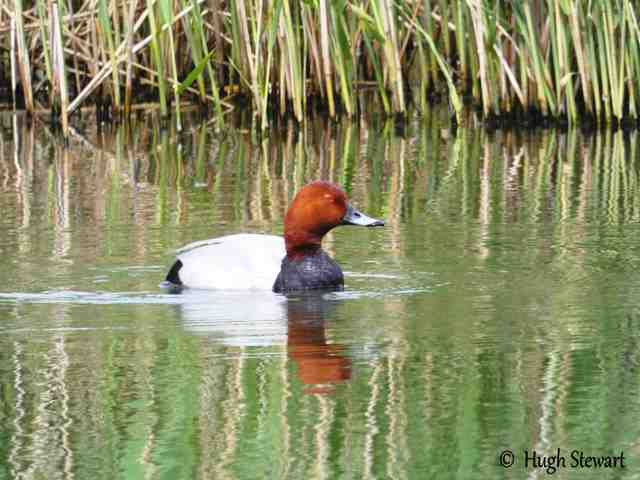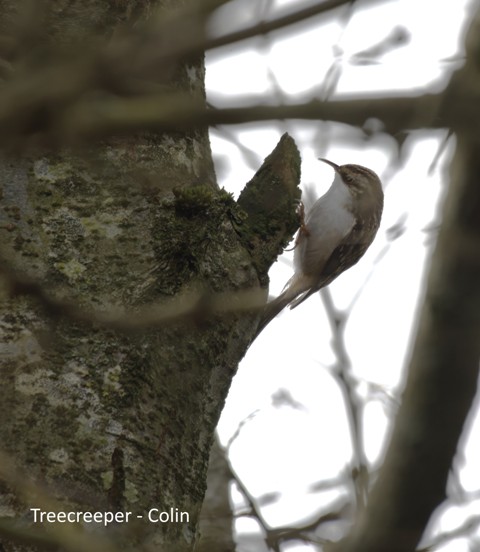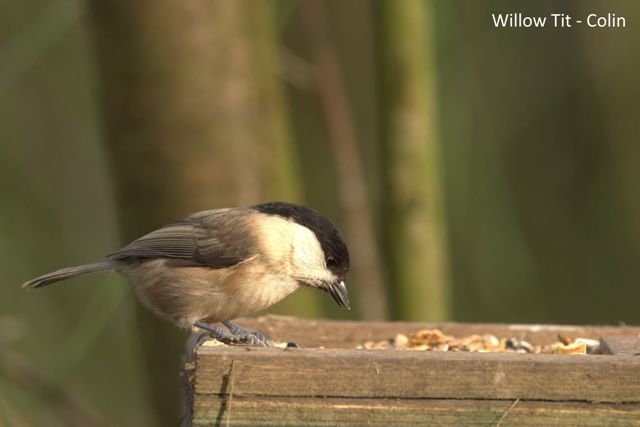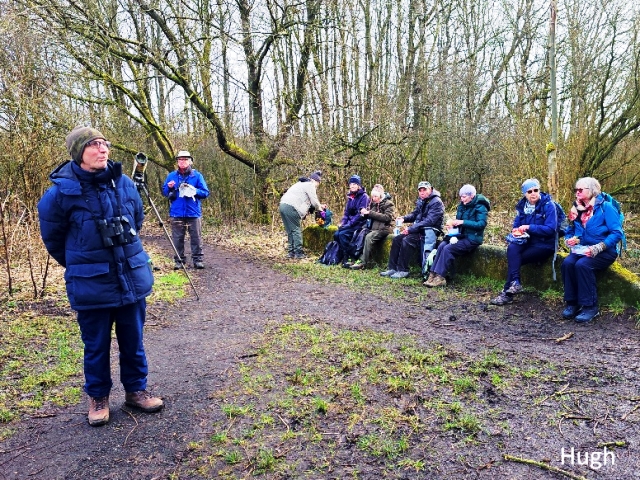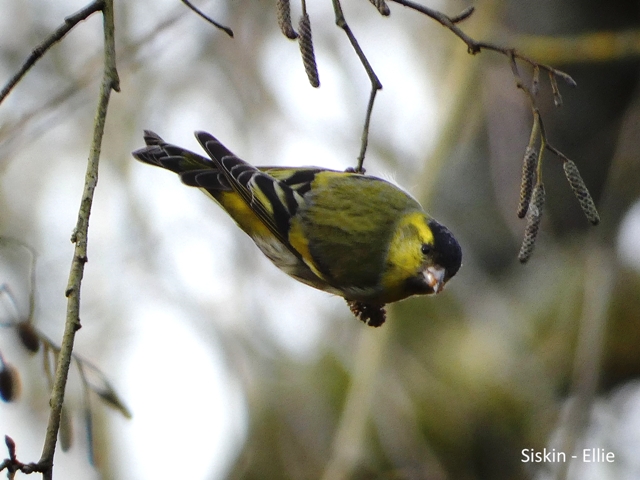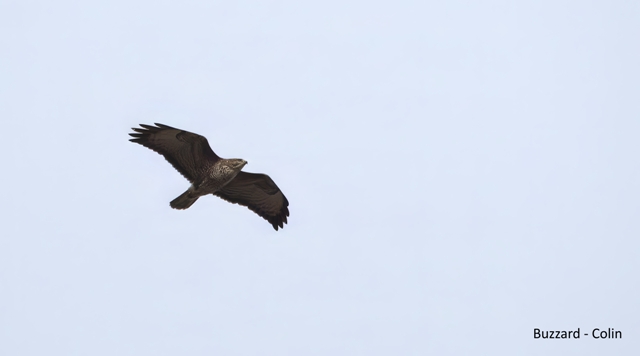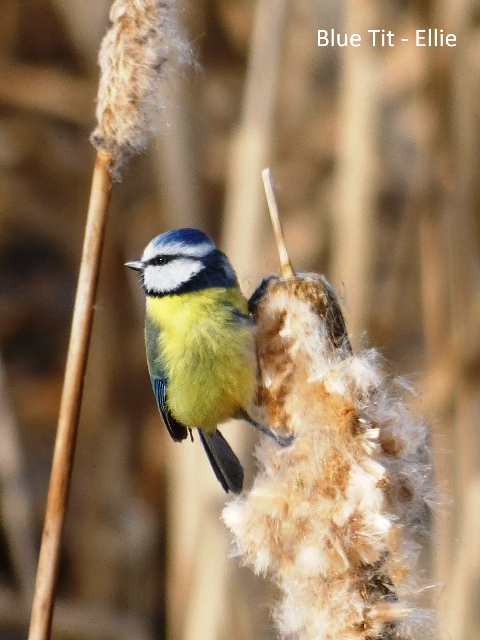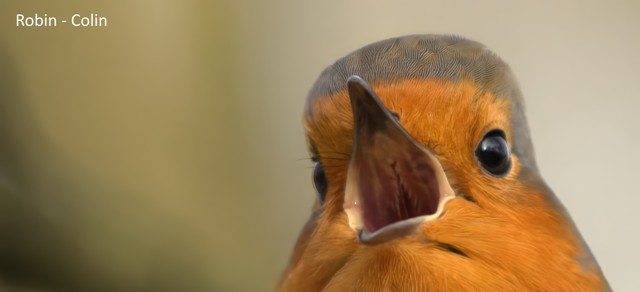Field Meeting Reports – 2024
Elan Valley – Saturday 27th April 2024
What great support we had for our coach trip to Elan Valley near Rhayader! We enjoyed a relaxing drive through increasingly beautiful countryside, with glimpses of Red Kites to whet the appetite.
On arrival at the Visitor Centre, we set off in slight drizzle, but soon found a couple of Stonechat and, on the river, the first sight of many Grey Wagtails we were to see throughout the day.
Crossing under the dam we ascended towards the oak woodland. Apologies for the slippery, wet stones steps! The trees were initially quiet, but eventually we started to see or hear Nuthatch, Willow Warber and Chiffchaff. A male Pied Flyctacher eventually obliged and gave good views. We were to see several more Pied Flycatchers, both male and female. It was interesting to observe several male flycatchers feeding on the riverside rocks – I wondered if there were more insects here than in the chilly woods.
It was noticeable that apart from 2 House Martins seen very briefly on our arrival, there were no Hirundines seen all day. The birds were clearly wishing for warmer weather as well as us. We returned to the Centre for lunch – and to warm up!
In the afternoon, the rain held off at least, although there was still a chilly wind. We followed the river upstream and enjoyed very good views of 2 displaying Common Sandpipers. In the same area a confiding Dipper showed well on a rock mid-stream, allowing everyone to admire it and take hundreds of photos! Only 3 of our group were fortunate to see a Redstart, one of our target birds. Also seen was a Daubenton’s bat unusually feeding in mid-afternoon, over river then alighting on a house roof!
Despite the weather, everyone enjoyed the beautiful scenery, and while we only saw 34 species, these included some beautiful views of some classic Welsh valley birds.
Thank you to everyone for supporting the coach trips; and to Ellie, Colin, Bill and Hugh for sharing their photos. I could have included so many more if space allowed!
Hugh
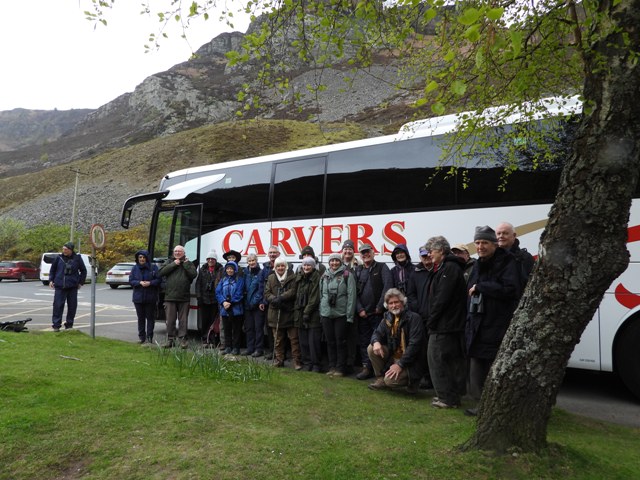
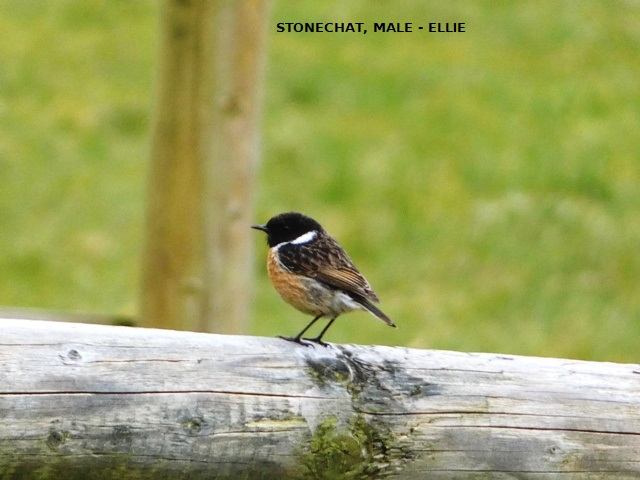
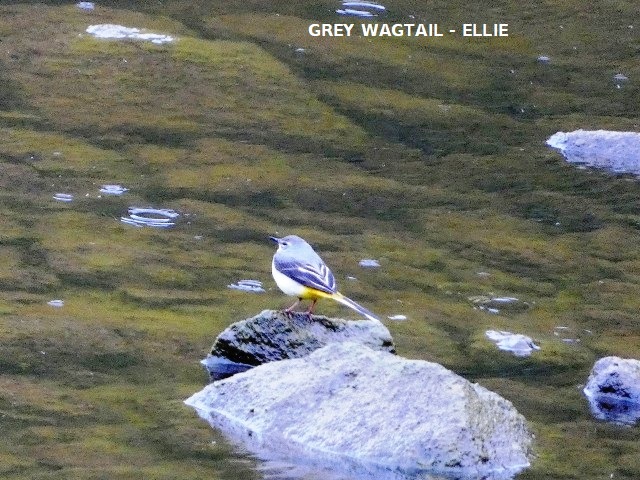
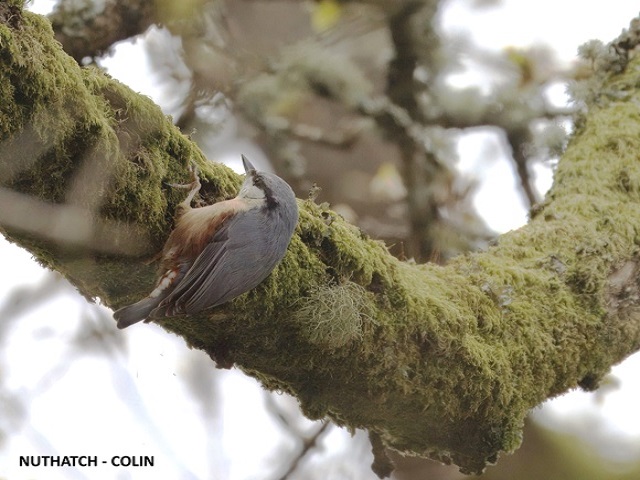
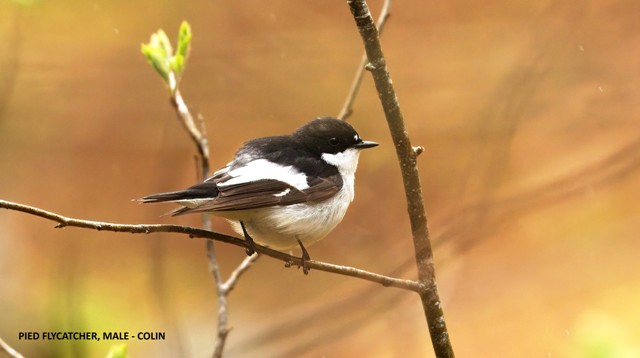
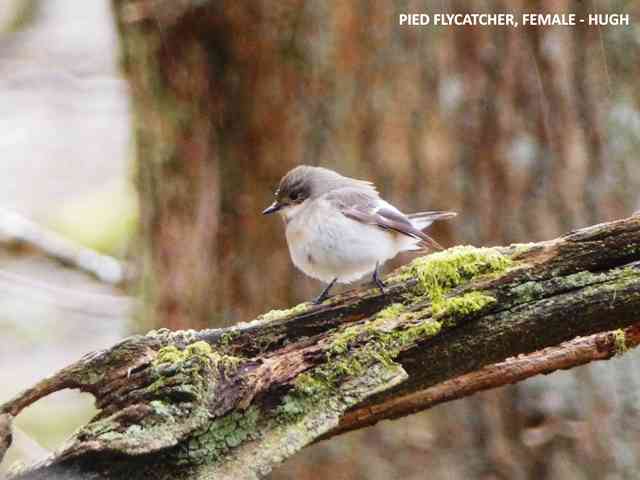
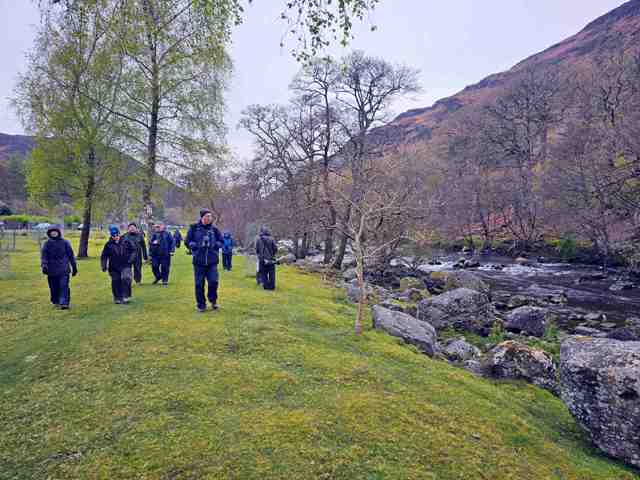
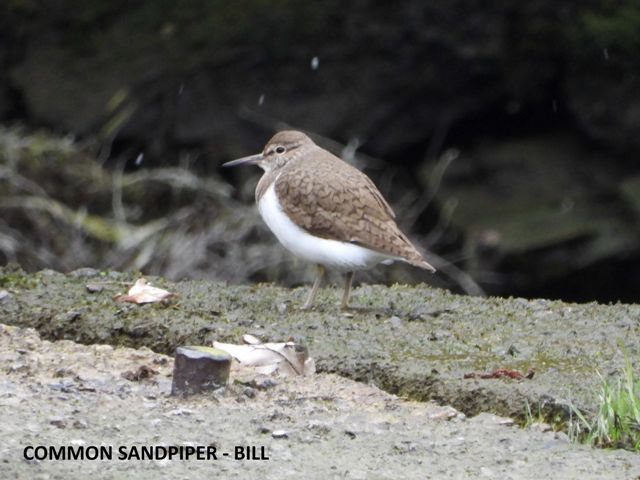
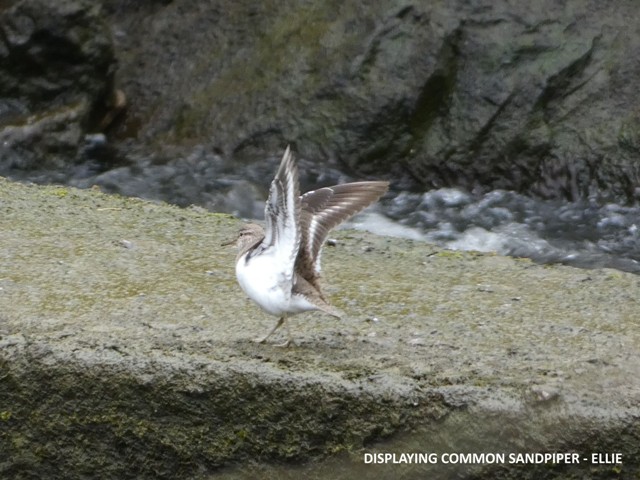
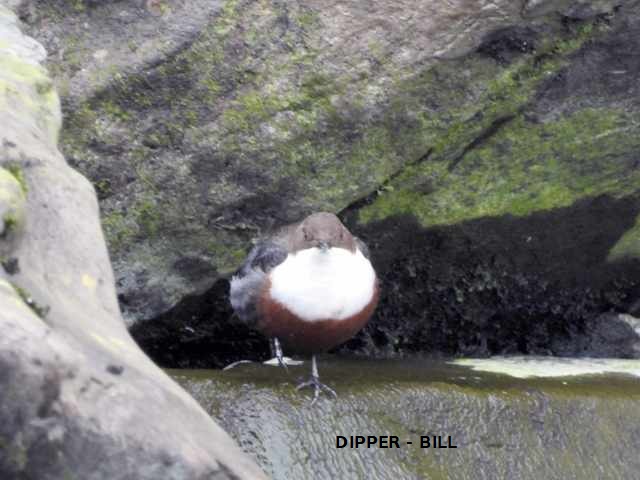
Whitegate Way – Saturday 23rd March 2024
Despite the poor weather forecast, 10 members met up for our trip to explore Whitegate Way. But as is often the case, the conditions were not as bad as we might have feared, and we enjoyed a pleasant day out.
As we gathered together, a Treecreeper made a brief appearance, although we did see another one later. Following the main path, several Chiffchaffs were seen and heard, back for their breeding season. The expected Blue, Great and Long-tailed Tits were noted, as well as Jackdaw, Carrion Crow and Rook. At the first lake, Mute Swan and Tufted Ducks kept an eye on the fishermen dotted around the shore. A pair of Goldcrest were found by Ellie, one being particularly obliging as it atypically settled for a minute or two.
A little further on at the larger lake were more Tufted Duck and several Great-crested Grebes as well as Coots. A single male Gadwall and two drake Goldeneye were picked out.
We returned to the car park for lunch before starting a walk in the opposite direction. Almost immediately a couple of Redpolls were seen feeding intently. After some checking, it was decided that they were Lesser Redpolls, the regular species seen in the UK.
A male Kestrel alighted on a nearby tree, but the wind shook the branch and it flew off before I could get my camera out!
Shenagh spotted pair of Blue Tits exploring a possible nest hole in a rotten tree. Surely Spring proper must arrive soon!
Eventually we slightly reluctantly called it a day and most of the group returned to Whitegate Station. Well, in truth we wanted to visit the Station Cafe before it closed, for a very welcome drink and cake! It was a lovely way to end the day.
Thank you to Ellie for the wonderful bird photos.
Hugh
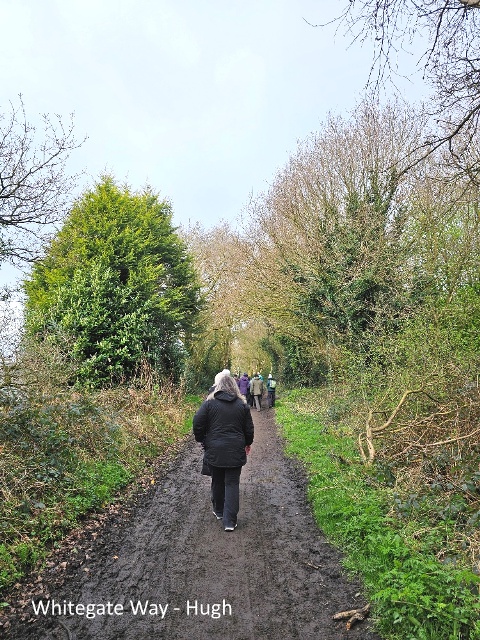
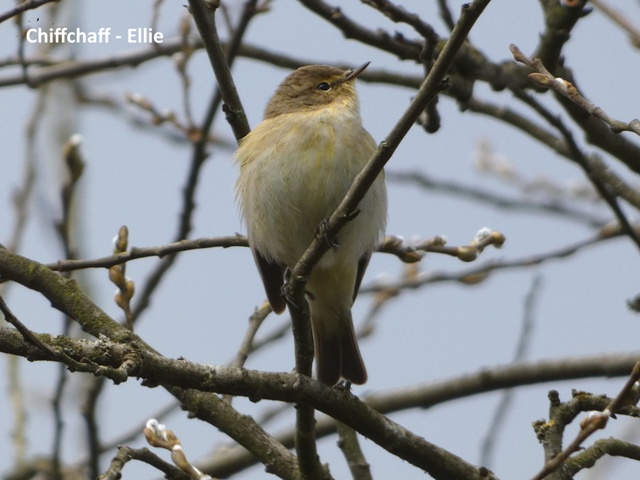
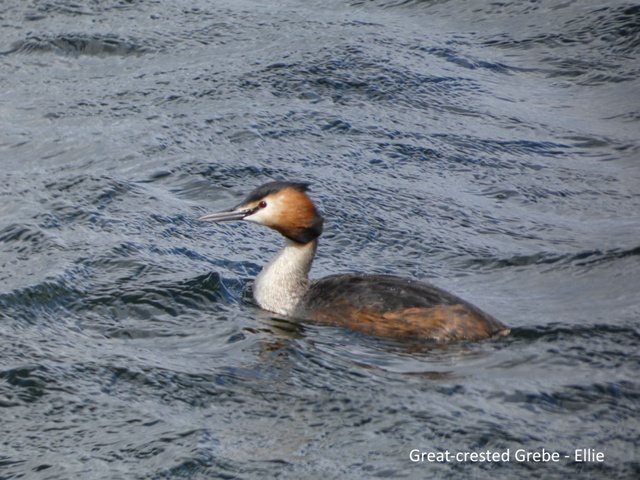
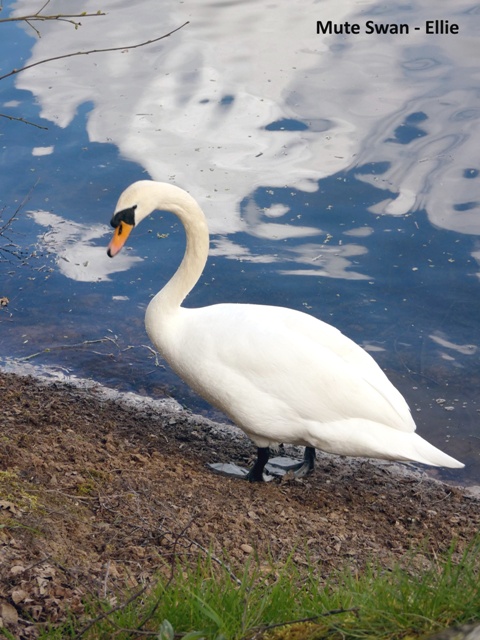
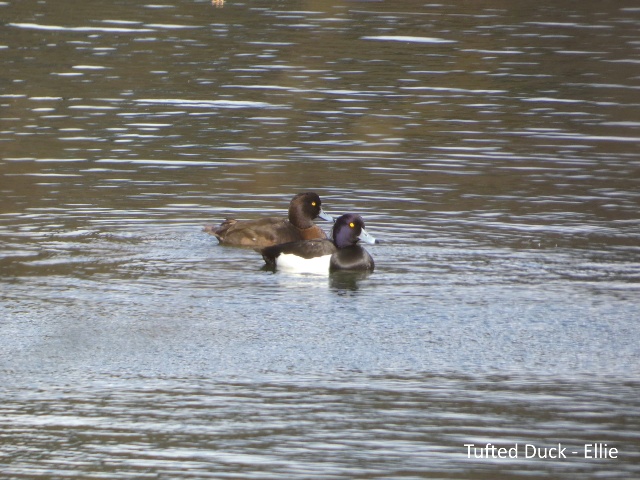
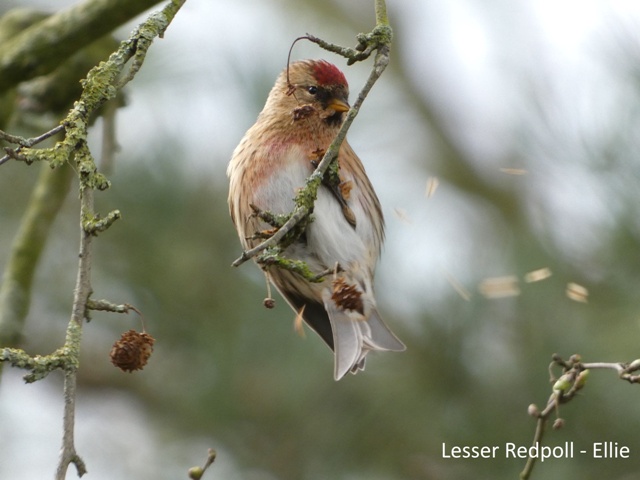
Thurstaston Country Park – Tuesday 27th February 2024
It is a long time since I visited Thurstaston Visitor Centre, so it was nice to get reacquainted with the focal point of Wirral Country Park. While there were signs around that spring is just around the corner, it was a rather cold, breezy and grey day to remind us that winter isn’t quite over!
Wood Pigeon and Collared Dove were common, attracted no doubt by the feeding station behind the Centre. We set off and quickly made our way to the cliff edge to scan the mudflats before the incoming tide covered them. Redshank, Oystercatcher and Curlew could be seen spread out over the vast expanse, but the cold wind made the telescope shake terribly! We moved a little further on and found a more sheltered spot where we also picked out a few Bar-tailed Godwit and a couple of Knot. A Greenfinch “wheezed” from a dense bush but didn’t show. That was to be a feature of the day!
The Rangers have been busy clearing the ponds, making a great looking habitat that should come alive when the summer migrants return in a few weeks time. Today there were only Mallard, Coot and Moorhen.
Walking on to the Wirral Way, birds were keeping down out of the wind still. We did see Robin, Goldcrest, Wren and Long-tailed Tit though. Turning off to the Dungeon, we added Chaffinch, Great and Blue Tit, and Jay, and heard Buzzard “mews”.
We returned to the Centre for lunch, making good use of the Whistle Stop Cafe!
After lunch, a reduced number walked in the opposite direction down to Dee Sailing Club. A Great-spotted Woodpecker flew away in front of us, then flew back past us and settled in a tree. Sean picked out the red nape of a male bird. The tide was well in at the Sailing Club slipway, and there was nothing much to see on or above the water except for one, then two Kestel hovering on the updraft from the cliffs. We returned across Dawpool Nature Reserve, noting the emerging Bluebells, and Blackthorn and Wild Cherry Blossom.
Photos by Colin, Bill and Hugh.
Hugh
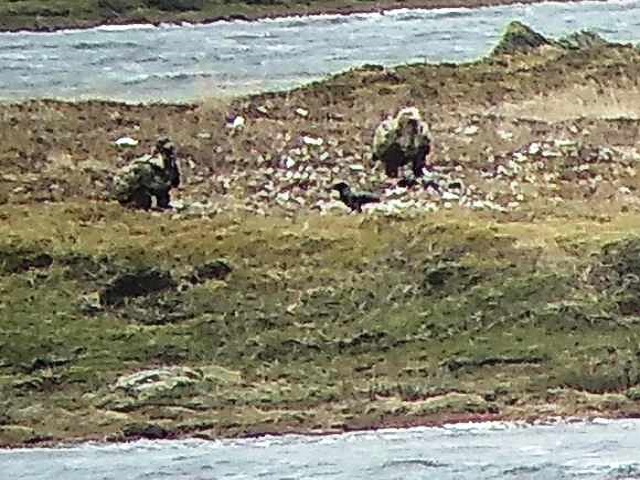
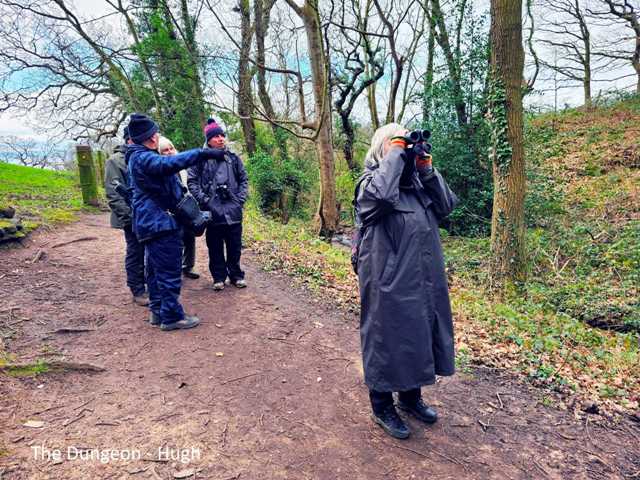
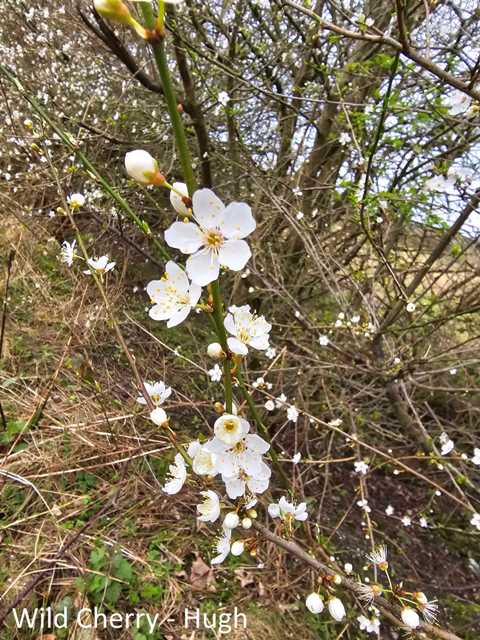
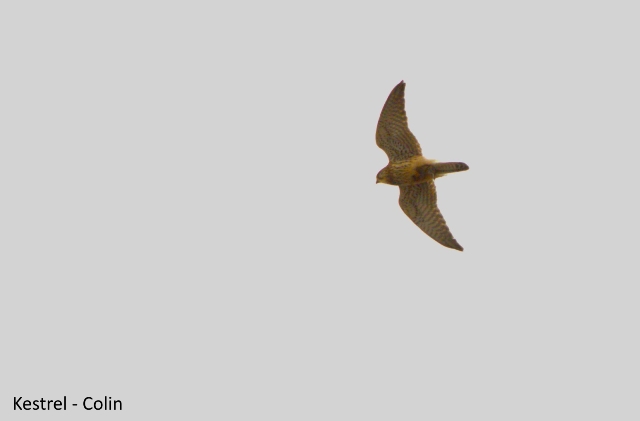
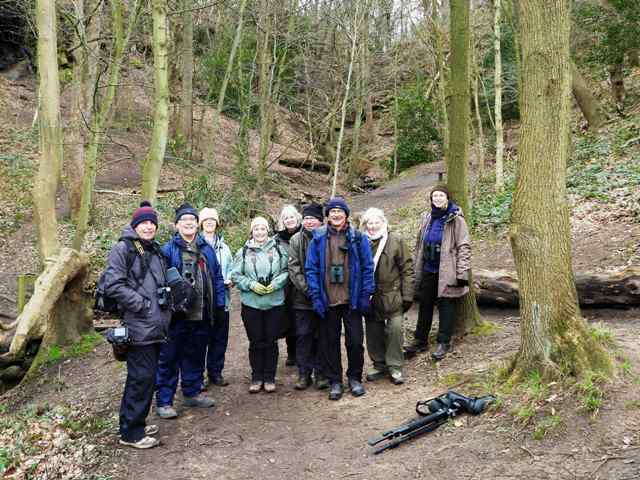
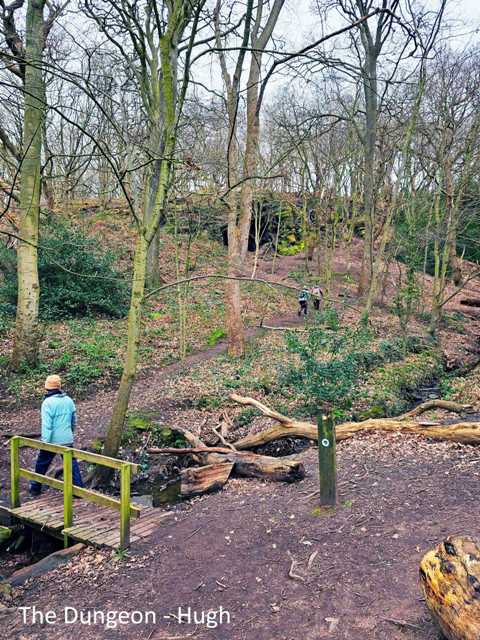
Wigan Flashes – Saturday 28 January 2024
Once we’d separated ourselves from the walking group also setting off from the carpark, we began our exploration. A small lake had a family of approachable Mute Swans and Mallard, obviously used to being given bread by passers-by. We picked up the canal path alongside the large Scotsman’s Flash, where there were at least 3 Great-crested Grebes plus many Tufted Duck and Coots.
Further on we turned off into a wet woodland area. We found a really productive spot, where it was difficult to decide which way to look. First of all, it’s confession time! Seeing the photos from Colin and Ellie, I can see they were Willow Tits we saw (not Marsh as I claimed at the time!). I said they were difficult species to separate! Bullfinch, Treecreeper and Reed Bunting were also amongst the birds seen here. Robins and Goldcrests were everywhere.
We stopped for lunch where locals had put seed out so we were entertained by various Tits as we ate. Three Buzzards soared above us.
We resumed our way along the canal, but despite a tip-off, we couldn’t find the reported Bittern sadly. Returning back along the canal path, Siskin and Nuthatch were spotted. On Pearson’s Flash at least 25 Goldeneye flocked tightly together, and the males were displaying by throwing their heads backwards over their backs. Tufted Duck were also present as a nice comparison. Shoveler, Teal and Gadwall were noted in smaller numbers. A single, piping Oystercatcher betrayed its presence. A flock of Lapwing passed by overhead.
As the sun started to drop lower, the temperature began to drop. But we had enjoyed a lovely day. It was capped back at the car park by a circling Sparrowhawk! That made it 44 species seen by the group, plus 2 probable/possible species heard only.
Photos courtesy of Colin, Ellie and Hugh.
Hugh
